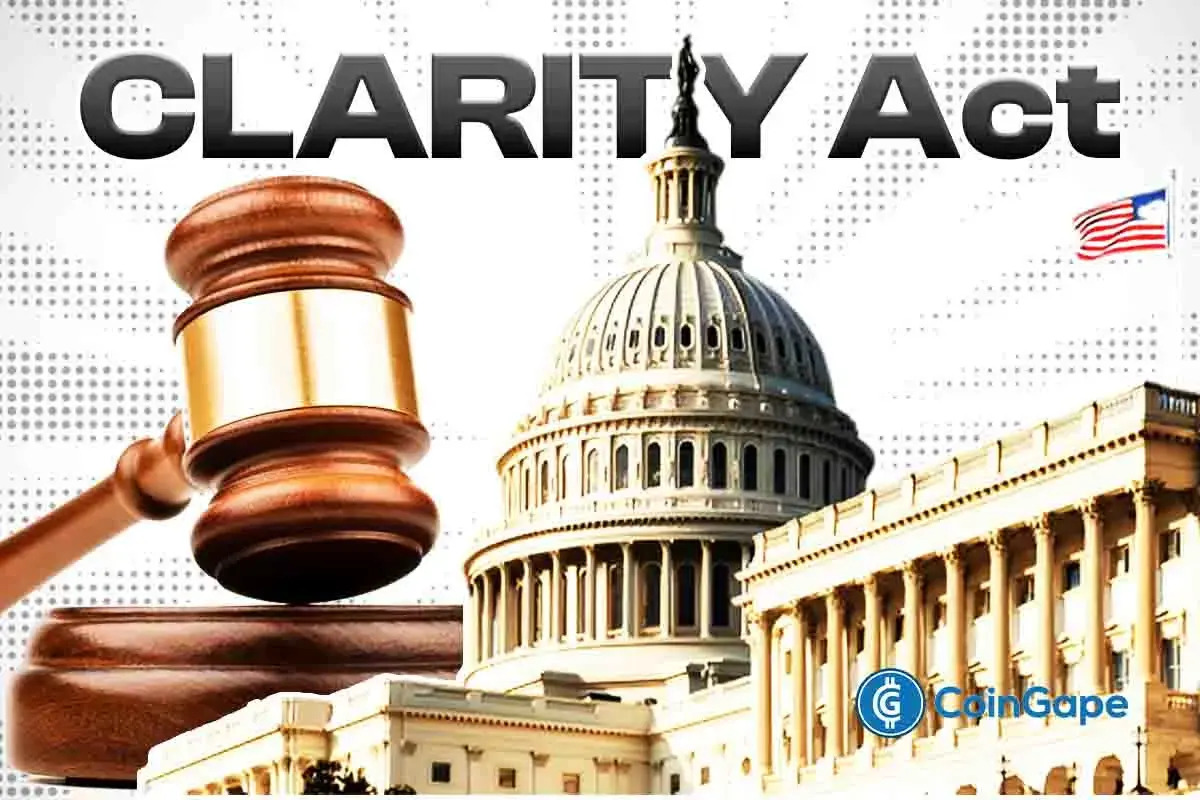Just In: US Senate Committee Approves Senator Hagerty’s Stablecoin Bill, Genius Act

Highlights
- GENIUS Act clears Senate Banking Committee 18-6, seeks stablecoin regulation.
- Bipartisan backing as 5 Democrats vote in favor of the GENIUS Act.
- GENIUS Act aims for U.S. leadership in stablecoin innovation and consumer protection.
The U.S. Senate Banking Committee has approved the Guiding and Establishing National Innovation for U.S. Stablecoins Act (GENIUS Act), moving the bill closer to a full Senate vote. The legislation, introduced by Senator Bill Hagerty (R-TN), aims to create a federal framework for stablecoin regulation.
With an 18-6 vote, the committee cleared the bill with bipartisan support, including five Democrats voting in favor. The bill still needs approval in the full Senate and House of Representatives before reaching President Donald Trump’s desk for final approval.
Stablecoin Bill Advances With Bipartisan Support
The GENIUS Act has been presented as a pro-growth and consumer protection measure that aims to provide clear regulations for stablecoins in the United States. Senator Hagerty stated that the bill would help the country “lead in financial innovation while ensuring consumer protections.”
During the committee hearing, several Democrats expressed concerns about the bill’s current form but acknowledged the need for regulatory clarity. Senators Kirsten Gillibrand (D-NY) and Angela Alsobrooks (D-MD) co-sponsored the bill, showing bipartisan backing. However, some Democratic members proposed amendments to add stricter regulatory controls, most of which were voted down by the Republican majority.
Committee Chairman Senator Tim Scott (R-SC) described stablecoins as “just travelers checks on the blockchain”, emphasizing the need for clear regulations. The committee’s ranking Democrat, Senator Elizabeth Warren (D-MA), opposed several provisions of the bill, calling it a “threat to national security.”
Warren and Other Democrats Raise Concerns
During the hearing, Senator Warren criticized the bill, arguing that it lacked sufficient safeguards. She expressed concerns about stablecoins being used in illicit financial activities and raised allegations regarding former President Trump’s reported ties to a stablecoin platform.
“It would be crazy to advance this bill when it’s got so many holes in it,” Warren said, referencing recent reports about Trump-linked World Liberty Financial allegedly working with crypto exchange Binance.
Senator Catherine Cortez Masto (D-NV) also voiced concerns, arguing that the bill needed more debate before advancing. She stated, “It is a great start, but it is not ready for prime time.”
Despite these objections, the Republican-led committee moved forward with the bill, rejecting multiple Democratic amendments. Senator Scott defended the committee’s approach, saying, “We’ve been working nights, days, weekends to get this accomplished.”
Banks and Fintech Firms Race to Develop Stablecoins
As U.S. lawmakers debate stablecoin regulations, top banks and fintech firms are racing to introduce their own stablecoins to gain an edge in cross-border payments. The increasing adoption of blockchain-based financial solutions has fueled competition in this space.
The growing regulatory recognition of stablecoins as a legitimate financial tool has encouraged financial institutions to integrate these assets into their operations. As a result, several banks and payment platforms have started developing their own digital assets to facilitate faster and cheaper transactions.
Meanwhile, cryptocurrency exchange Binance announced changes to its stablecoin trading policy in the European Economic Area (EEA). In a March 3 statement, Binance confirmed it would delist all non-MiCA-compliant stablecoin trading pairs in the region. The move aligns with the European Union’s Markets in Crypto-Assets (MiCA) regulation, which aims to standardize crypto policies across member states.
Next Steps for the GENIUS Act
With committee approval secured, the GENIUS Act now awaits a full Senate vote, though no date has been set. Lawmakers are expected to continue negotiations behind the scenes to gain further Democratic support.
Before becoming law, the bill must also pass in the House of Representatives, where coordination between both chambers will be necessary. If approved, the legislation will be sent to President Trump for final signing.
- Prediction Market News: Polymarket to Offer Attention Markets Amid Regulatory Crackdown
- How “Quiet Builders” Are Winning the Web3 Race
- XRP News: Ripple Taps Zand Bank to Boost RLUSD Stablecoin Use in UAE
- BitMine Keeps Buying Ethereum With New $84M Purchase Despite $8B Paper Losses
- Polymarket Sues Massachusetts Amid Prediction Market Crackdown
- Ethereum Price Outlook As Vitalik Dumps ETH While Wall Street Accumulates
- XRP Price Prediction Ahead of White House Meeting That Could Fuel Clarity Act Hopes
- Cardano Price Prediction as Bitcoin Stuggles Around $70k
- Bitcoin Price at Risk of Falling to $60k as Goldman Sachs Issues Major Warning on US Stocks
- Pi Network Price Outlook Ahead of This Week’s 82M Token Unlock: What’s Next for Pi?
- Bitcoin and XRP Price Prediction as China Calls on Banks to Sell US Treasuries
















